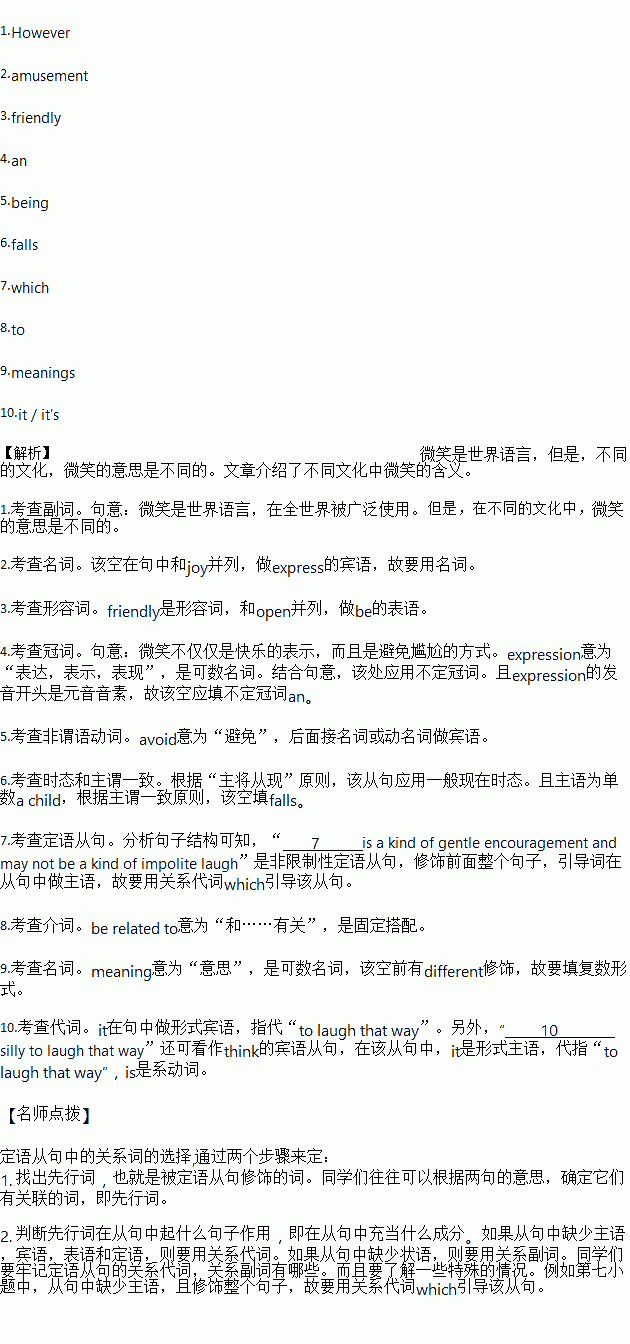题目内容
Smiling
Smile is a universal language, which is widely used throughout the world. 1., the meaning of a smile in different cultures may be different. Depending on different cultures, smiling can express joy and2. (amuse), but it can also indicate embarrassment. The following examples show this point of view:
In an attempt to be open and 3.(friend), people in the United States smile a lot. Every one smiles at each other and this nonverbal communication shows being polite in the United States. But in China, smiling is not only 4.expression of happiness, but also a way to avoid5.(be) embarrassed. Chinese people like smiling when they are embarrassed in order to avoid embarrassment. Smiling is a kind of good will but not sneer (嘲笑). For example: When a child 6.(fall) off from a bike, the adults in China may smile,7.is a kind of gentle encouragement and may not be a kind of impolite laugh.
Related8.the smile is the laugh. Also, different cultures have different 9.(meaning) about laugh. Americans can enjoy a very heartfelt belly (腹部) laugh that comes from the deepest emotions while most Chinese may think10.silly to laugh that way.


 of the best memories. Finally we reached the top of Kilimanjaro in bright blue skies.
of the best memories. Finally we reached the top of Kilimanjaro in bright blue skies.